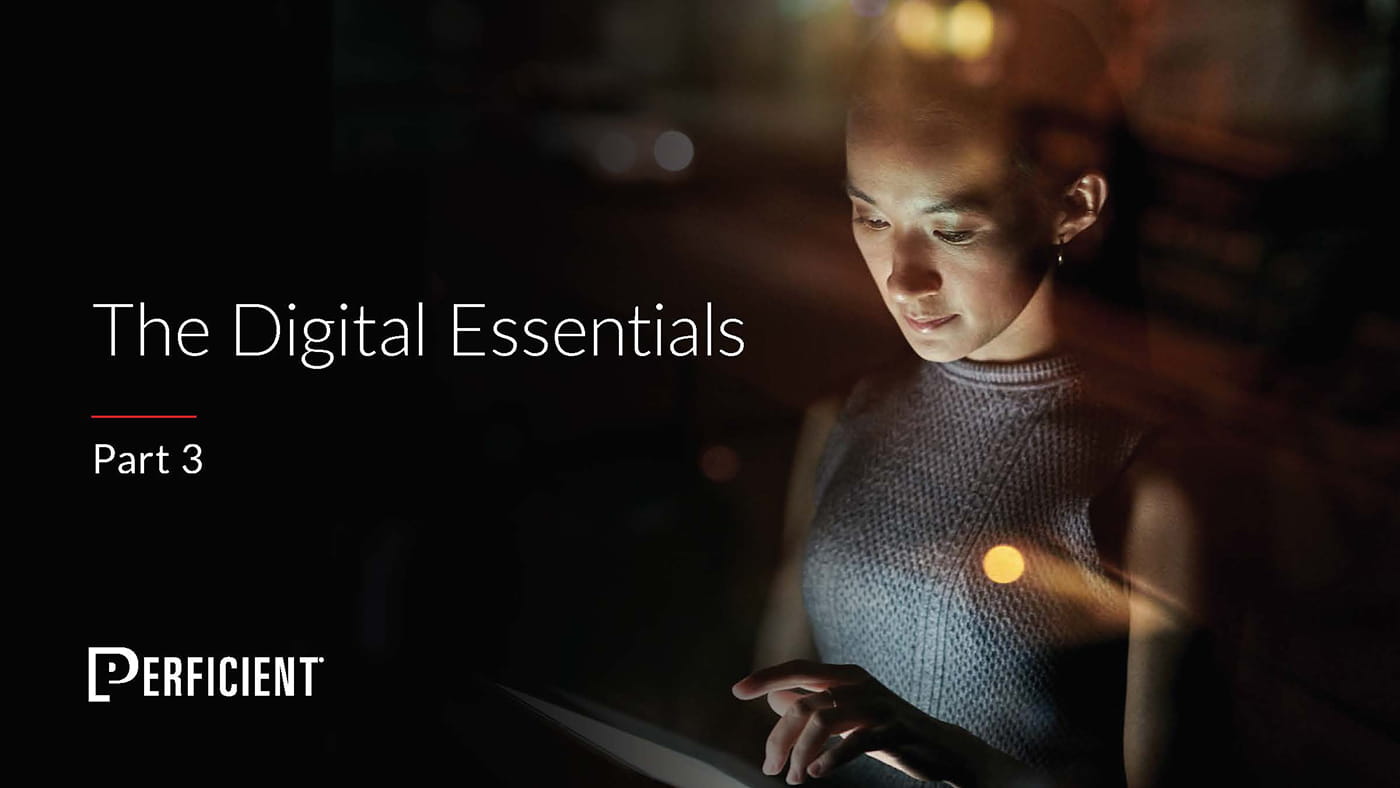More choice seems like it would always be better, but too many options can actually paralyze your customers into indecision and reduced satisfaction.
In this episode of our popular Here’s Why digital marketing video series, Perficient Digital’s Mark Traphagen explains the paradox of choice, and how marketers can turn it from a negative to a positive to increase sales and customer satisfaction.
Don’t miss a single episode of Here’s Why. Click the subscribe button below to be notified via email each time a new video is published.
Resources
- The Paradox of Choice: TED Talk by Barry Schwartz
- See all of our Here’s Why Videos | Subscribe to our YouTube Channel
Transcript
Eric: Mark, your topic today is how the paradox of choice affects marketing. Paradox of choice almost seems like an oxymoron, though. I mean, isn’t more choice a good thing?
Mark: Well, that’s what we’ve been conditioned to believe, right, Eric? Especially with the rise of western democracy over the past few centuries, choice equals freedom. So more choice means more freedom, and freedom of choice has long been seen as a good to be maximized.
Eric: How can then there be a paradox of choice?
Mark: Psychologist Barry Schwartz talked about it in a TED talk that’s been viewed by over 10 million people. He started by reminding us of the overwhelming number of choices we have these days for almost everything. For example, he noted that his supermarket has over 175 different salad dressings, and that’s not even counting all the oil and vinegar choices. Or the number of treatment options a doctor might offer a patient, where the patient has to become an instant expert in evaluating which is the best choice.
Eric: So, choice can become overwhelming, sure, but how is that a marketing issue?
Mark: Dr. Schwartz listed two negative effects of too much choice, and I think both have direct impact on the effectiveness of our marketing campaigns.
The first is called choice paralysis. The shocking fact is when people are faced with too many choices, they often end up making no choice at all. Dr. Schwartz cited a study of employee participation in mutual funds for voluntary retirement programs, and they found that for every 10 fund choices that were added to the list of options, the rate of participation went down 2%.
[Tweet “Are you losing sales to choice paralysis? Find out!”]
That means that if you offer 50 funds, 10% fewer employees will participate at all than if you offered just five. Now, why? Because when there are too many choices, we feel confused and overwhelmed and it becomes easier to put off the decision until we end up not making it at all.
The second negative effect is called opportunity cost. When we have too many choices, even if we do make a decision, we end up less satisfied with our choice. The more options there were, the more we have this nagging sensation in our brains that tells us there might have been a better option than the one we chose.
[Tweet “Find out why choice paralysis and opportunity cost are phrases every marketer should understand”]
Eric: So, if you’re offering too many choices, too many options, you’re probably scaring away sales. And if people do buy, they may feel less happy about their purchase, which could increase returns or make them less likely to buy from you in the future.
Mark: Bingo.
Eric: So, is there a positive here? Can marketers make use of the paradox of choice to improve sales and customer satisfaction?
Mark: Yes, for sure. And I have a great example of that that I’ve used before in another context, but I think it wonderfully illustrates how this works. Now, I use the streaming music service Spotify, because it gives me access to millions of songs. Fantastic, right?
Eric: Yeah.
Mark: But like a lot of users, I found that something special was missing.
In the old days before the internet made music available on demand, discovering new music was fun exactly because it was more challenging. For example, a friend might send me a mixtape. The music on that tape would mean more to me because it took a lot of effort for my friend to curate those 10 or 12 songs. When the whole world of music is at your fingertips, you end up not exploring because it’s just too big.
Now, Spotify realized this and understood that it actually made a dent in how much people use their service. So they created Discover Weekly.
Every Monday, each Spotify user gets a unique personalized playlist of just 30 songs from artists or bands they haven’t played before. The songs are algorithmically chosen based on commonalities between your listening habits and others who are just like you. I find my happiness with Spotify has gone way up because with a curated list of just 30 songs, I actually do discover new artists all the time. So by offering me a limited choice, Spotify actually does me a favor and brings back a joy I had missed in my music listening experience.
Eric: So, it sounds like the takeaway for marketers is as tempting as it is to offer more choices and options, limiting the choices to a few that are most likely to fit the user is probably better.
Mark: Right. And that phrase you used, most likely to fit the user, is also key here. Now that’s where artificial intelligence and machine learning, such as that used by Spotify’s Discover Weekly or Amazon’s people who bought this also bought this thing feature, can make a limited choice even more effective by personalizing it to the individual.
Don’t miss a single episode of Here’s Why. Click the subscribe button below to be notified via email each time a new video is published.
See all of our Here’s Why Videos | Subscribe to our YouTube Channel
